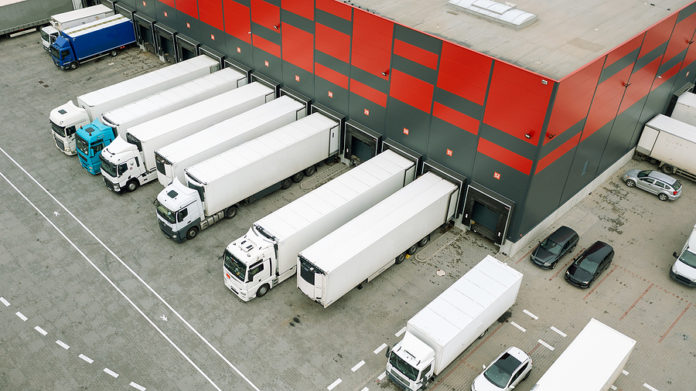
By Mikko Peltomäki, Director of Business Development, Cimcorp
Key takeaways:
- Automation strengthens compliance and response: Automated logistics systems ensure accurate traceability records, streamline regulatory compliance, and enable rapid responses to recalls or contamination incidents.
- Data-driven transparency builds trust: By capturing and sharing precise product movement data, automation enhances collaboration across the supply chain, boosts consumer confidence, and supports ethical, sustainable sourcing.
- Automation improves safety and sustainability: Beyond traceability, automated systems maintain optimal storage conditions, simplify sanitation, reduce waste, and accelerate order fulfillment — making food supply chains safer, more resilient, and more sustainable.
Traceability is vital in today’s food supply chains, where goods move through a complex network of suppliers, processors, manufacturers, logistics providers, and retailers. Every party must collect and maintain accurate data on product origins, statuses, and movements. This information is crucial for meeting regulatory standards, protecting consumer health, and enabling quick action if a food safety incident occurs.
However, the food industry is facing growing challenges in meeting traceability standards. The FSMA Food Traceability Final Rule will go into effect on July 20, 2028, introducing additional recordkeeping requirements. While 2028 may seem far off, compliance will require extensive planning and traceability system overhauls. On top of that, major grocery retailers like Walmart and Kroger have implemented their own strict internal traceability requirements, setting the bar high for the rest of the industry. Food businesses will need to strengthen their traceability programs if they want to remain compliant and competitive.
At the warehousing and distribution level, automation is a must-have for any robust food traceability program. Automated logistics solutions not only transform how companies handle food products. They also modernize the collection, management, and sharing of data, which ultimately enhances traceability, trust, and safety across the entire supply chain.
Supporting food traceability in warehousing and distribution
As essential points between stages of the supply chain, warehouses and distribution centers play key roles in establishing an accurate and detailed record of each product’s journey from farm to fork. Automated logistics systems support these efforts, combining robotic handling technology and advanced software to control and document every step a product takes through the distribution process.
In an automated setup, food products are labeled with unique barcodes that enable tracking and data analysis. Robots efficiently and accurately transfer the products from receipt and storage through order picking and shipping — while maintaining required storage conditions for perishable items like fresh produce, dairy products, and baked goods. Integrated software automatically captures and stores all required tracking data, including product origins, batch numbers, and destination information.
This automated, error-free distribution process helps food companies:
1. Streamline regulatory compliance
With automation, food businesses can maintain comprehensive and accurate traceability records in compliance with evolving food safety regulations. The ability to quickly access and retrieve critical tracking data also enhances audit preparedness, enabling businesses to demonstrate compliance when required.
2. Rapidly respond to food safety issues
Quick and decisive action is essential when food safety issues arise. Whether dealing with recalls, withdrawals, or contamination incidents, automation empowers manufacturers, distributors, and retailers to swiftly identify, track, and isolate affected products. This rapid response prevents compromised products from impacting consumer health, while minimizing the financial and reputational damage that comes with a food safety crisis.
3. Build trust among stakeholders and consumers
By leveraging automation, food businesses can foster greater transparency, accountability, and collaboration across their supply chain network. With access to precise traceability data, stakeholders can work together to uphold the highest standards of food safety and consumer protection.
Moreover, enhanced traceability boosts consumer confidence and trust in the food supply chain. Consumers can not only enjoy safe, high-quality food, but also gain greater insights into food origins and processing. They can make more informed purchasing decisions that align with their personal values, such as choosing products that are sustainably and ethically sourced.
4. Promote sustainable and ethical practices
Food traceability promotes supply chain sustainability. Food companies gain better visibility into operations across the supply chain, helping them identify opportunities to reduce waste and conserve resources. Additionally, they can ensure that food ingredients and products come from sources that use sustainable and ethical practices.
Securing the food supply chain with automation
As companies look to strengthen their commitment to food safety, implementing automation marks a major step in the journey. Beyond improving traceability, automated logistics solutions help distribution facilities address other important aspects of food safety.
For example, some automated systems, like gantry-based solutions with floor-based storage, make thorough sanitation simple. This creates a clean, hygienic environment for food handling. Plus, automation can keep perishable foods fresh and safe for consumption. The systems can monitor environmental factors, like temperature and humidity, to ensure sensitive products are kept in optimal conditions. Automation also accelerates order fulfillment times, which further minimizes the risk of spoilage.
In an industry where safety and trust are paramount, automation is the key to securing a more resilient and reliable food supply chain. By investing in automation, food companies can deliver significant benefits to their business, to consumers, and to the planet alike.
 Mikko Peltomäki is the Director of Business Development at Cimcorp. With expertise in automation and supply chain optimization, he helps businesses enhance efficiency through cutting-edge robotic solutions. Mikko focuses on forging partnerships and delivering intelligent automation to streamline operations in today’s evolving logistics landscape.
Mikko Peltomäki is the Director of Business Development at Cimcorp. With expertise in automation and supply chain optimization, he helps businesses enhance efficiency through cutting-edge robotic solutions. Mikko focuses on forging partnerships and delivering intelligent automation to streamline operations in today’s evolving logistics landscape.
Credit: Source link







![[Webinar] The Hidden Cost of the Wrong Tools: How Spreadsheets and Generic ERPs Drain Your Profits [Webinar] The Hidden Cost of the Wrong Tools: How Spreadsheets and Generic ERPs Drain Your Profits](https://foodindustryexecutive.com/wp-content/uploads/2025/09/ECI-The-Hidden-Cost-of-the-Wrong-Tools-How-Spreadsheets-and-Generic-ERPs-Drain-Your-Profits-150x150.png)



